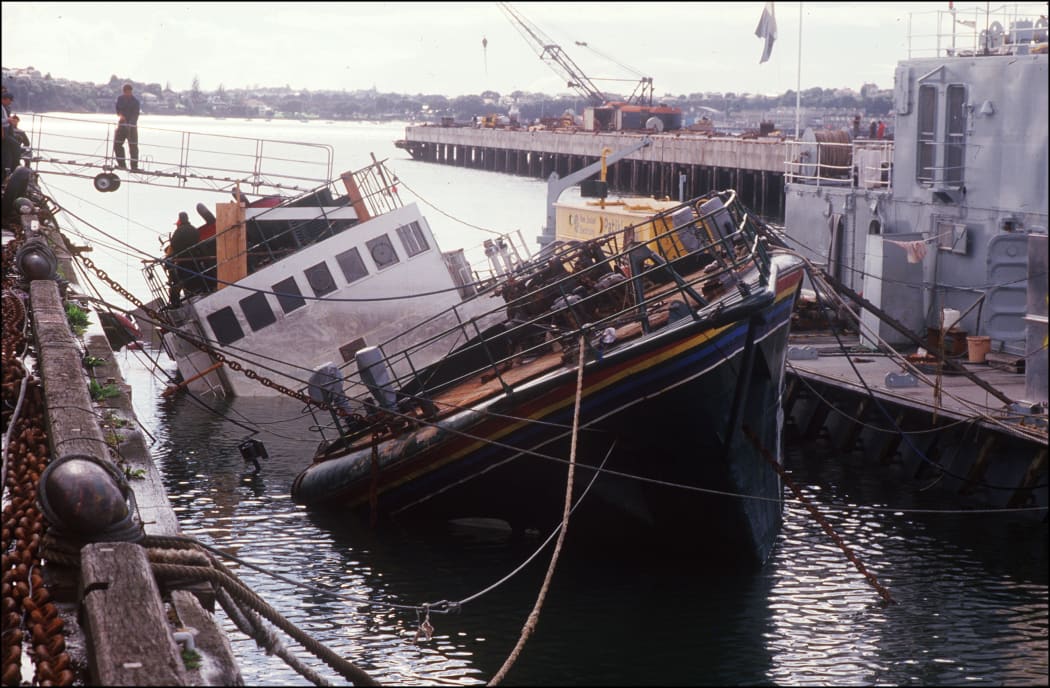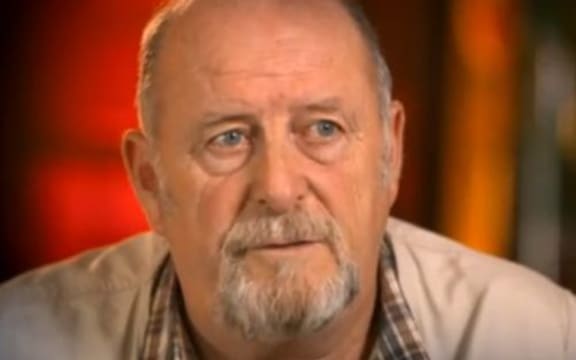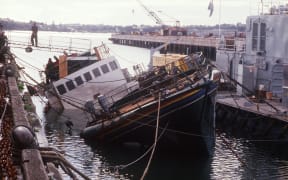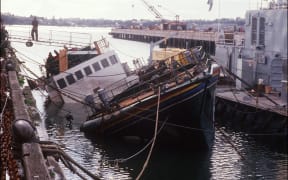The skipper of Rainbow Warrior hopes the apology from the French agent who planted a bomb on the boat allows him to sleep better but said justice had not been done.

A file photo of the Rainbow Warrior dated August 14, 1985. Photo: AFP
TVNZ's Sunday programme tracked down former French agent Colonel Jean Luc Kister in north eastern France, who confirmed for the first time publicly that he was the man who placed the two bombs that killed Greenpeace photographer Fernando Pereira.

Jean Luc Kister Photo: TVNZ
He said his team did not think people were on board when they were planting the bombs. He said it was not the aim of his team to kill anybody and that he wanted to say sorry to the family of Mr Pereira, to Greenpeace members on board the vessel, and to the people of New Zealand.
"I would like to take this opportunity given to me by the TV of New Zealand to express my deepest regrets and [apologies] to Miss Marelle Pereira and her family for the accidental death of Fernando Pereira."
Rainbow Warrior skipper Peter Willcox told Morning Report the apology from Mr Kister was perhaps late in coming, but "sincere".
"I hope it allows him to sleep better and live his life out," said Mr Willcox, but said it was not up to him to forgive, and justice had not been done.
"Someone was murdered in cold blood, two people that were part of the team spent I guess it was a year in jail in New Zealand. No, I don't think justice was ever done. I think that's a ridiculous notion."
He found it hard to believe the French team could have been so incompetent as to not know the the effect of the bomb.
"The first bomb blew a 2 x 2.5 metre hole in the hull and the boat sank in 45 seconds, " said Mr Willcox. "This was a professional dive team, they were military trained, I guess they were the best of the French military divers. And are you telling me they had no idea what the power of that bomb was going to do?"
Mr Kister said France believed Greenpeace had been infiltrated by the then Russian intelligence agency, the KGB. But Mr Willcox said said the French, who had someone inside the Greenpeace office for two months, could not possibly have thought that, and the statement was an excuse to cover their tracks after the event.
He did not expect the New Zealand and French governments to take any action over the new admission.
"It's a long way past that. I think that those men and women have to get up and face themselves in the morning. I think that's their biggest test."
He believes the apology would mean little to the children of the dead photographer.
"The French Government has never apologised to the family of Fernando Pereira for what they did. I think it's way past the time for that or really for much resolution."
On 10 July 1985, the French spies detonated mines attached to the side of the Greenpeace protest ship at Auckland's Marsden Wharf.
Two days later, agents Dominique Prieur and Alain Mafart were arrested.
France continued to deny any state involvement until late September that year.
Two months later, Prieur and Mafart were sentenced to 10 years' prison for manslaughter. However, a settlement meant that they were transferred to a base in French Polynesia and were released within two years.
France later issued a formal apology and paid compensation. Former Prime Minister Geoffrey Palmer, who was Attorney-General at the time, told Morning Report it was the most that could have been achieved.
"I don't say that it's perfect but I do say from New Zealand's point of view, we got as much as you could possibly expect when you're dealing with a powerful military nation, a permanent member of the security council and a nuclear power, and it was a very, very difficult dispute."
Greenpeace New Zealand executive director Bunny McDiarmid said it was good that someone from the French military had apologised, but rejected Mr Kister's assertion that his team did not think they would hurt anyone.
"I think he made an apology and then put all these conditions around it.
"I mean honest to God, does he really think that people think they didn't mean to hurt anyone? If you actually want to warn people you warn them."
She was annoyed that he used a television broadcast to apologise for his actions before approaching the family of Fernando Pereira or Greenpeace.
"If he's really interested in apologising why doesn't he approach people and do that?"
Ms McDiarmid said soldiers could not hide behind the line that they were just following orders.
"They put a massive bomb on the side of a ship in the middle of the night with people sleeping on it, and they knew people were sleeping on it, they had one of their spies... on board earlier in the evening."



